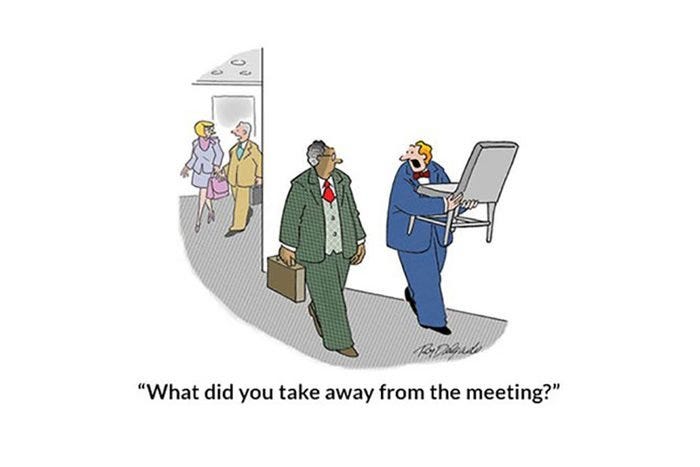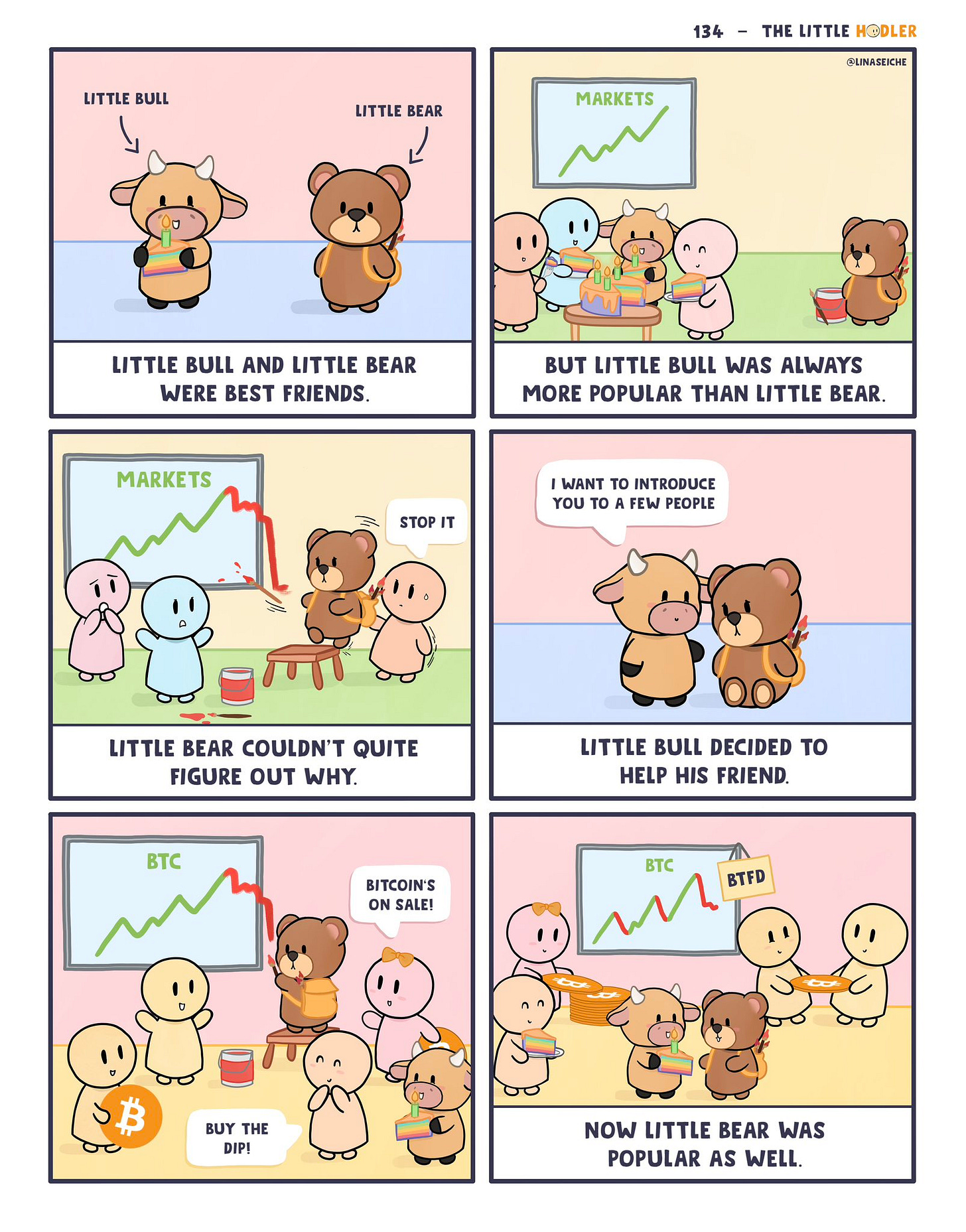Bitcoin Tech Talk #330
Interesting Stuff
Scars are beautiful - The main idea from this essay is that scars, or imperfections and failures have value. I don’t agree with the author that it’s society’s fault that we don’t appreciate scars, though. The desire for everything, especially objects to remain perfect and unblemished is because we’re using them as a store of value. Sadly, when we don’t have a good store of value, we use everything as a store of value and that means it has to be like new. Once you get out of that fiat mentality, scars, imperfections, etc, all become signs of use, signs of something that it’s fulfilled its intended function. And that is beautiful.
Cultural Homogeneity - The article argues that though there are all sorts of different niches throughout the internet, the dominant cultural art that’s produced has become more similar than ever. The article blames algorithmic decision making as the major contributing factor, but I think there’s a much greater case to be made that it’s really the centralization of content. We’re all consuming content from the same walled gardens and this is ultimately due to the rent-seeking positions these tech companies got themselves into through fiat money.
Nigeria and Oil - One of the most interesting stories I’ve read in a while about what’s going on with oil in Nigeria. The story is not just about oil and the incompetence with which the Nigerian government uses it, but also about rent-seeking, on-the-ground innovation, and filling the energy needs of the Nigerian market. What astounded me was how these cults (gangs, basically) learned to refine crude oil to kerosene, diesel and even gasoline without multinationals or NGOs telling them how. Just goes to show that there’s plenty of human ingenuity if there’s profit to be made. Western technology failed Nigeria as it centralized oil production, and didn’t give these people a chance to develop and give them a fair shot at being entrepreneurs.
OpenAI Content Filter - ChatGPT may unintentionally be a view into the Overton window of allowable opinion, which because of the leftist bias in what’s considered acceptable discourse, is not helpful for anything considered right wing. Sadly, what should be an amazing tool has become politically tainted and only helps regurgitate opinions acceptable to authorities. Even machines are bending the knee to politics. This is a textbook case of politics destroying progress.
What I'm up to
Fiat Ruins Work - My article for Bitcoin Magazine explores how work has been debased by fiat money. There’s a large component of rent-seeking in the economy that slows down everything productive and good. Sadly, even the most valuable companies of the past decade have turned into rent-seeking corporations, which is why they can lay off so many people and still work fine.
Bitcoin Source Interview - I did this interview a few months ago but it got released this week. In it I talk about Bitcoin and the need to learn and level up your game. I also talked about how my experience in Bitcoin has emboldened my faith. There’s something about getting out of the fiat status game that has helped me embrace Christ in a deeper and more meaningful way.
Thank God for Bitcoin 2023 - The Christian Bitcoin conference is back for 2023 and it’s now extended to two days! I won’t be able to make it, but last year’s conference was one of the highlights of the year for me. There’s nothing quite like this conference and I encourage you to attend.
Tbilisi and Yerevan - I’m in Tbilisi this week working hard on my new book. I’m also planning to go to Armenia fairly soon. If you have advice for me, or if by chance you live in these places, drop me a line at this email!
Tweet of the Week
What I’m Shilling
Unchained Capital is a sponsor of this newsletter. I am an advisor and proud to be a part of a company that’s enhancing security for Bitcoin holders. If you need multisig, collaborative custody or bitcoin native financial services, learn more here.
Bitcoin
Getting to Base Camp - A well-written log of the journey of an aspiring Bitcoin Core contributor. As he writes, he should have focused more on reviewing code at the beginning, particularly in the testing infrastructure. This has been my experience as well. Get your feet wet on reviewing PR’s on tests, then move toward other stuff that you feel you can best contribute in. He wrote a testing guide and he’s finally at the point where he can add more significant contributions. This should be both inspiring and cautionary for any aspiring core contributors.
Handcrank - This is a proposal for a drivechains sidechain without a soft fork. I would think that if drivechains really were a useful construct that something like this would be way more popular, but as far as I can tell, there’s not much traction. My opinion on sidechains hasn’t changed. The tokens issued on them copy the technical features of altcoins without the marketing dollars of altcoins. Therefore, they’re doomed to failure, much in the same way that un-marketed clones of popular altcoin projects also fail. That said, let them prove that there’s a market for sidechains with something like this.
Highly Available Bitcoin Node - The economics of Bitcoin are changing as we get more Lightning usage, and as this article points out, the dependence of L2 on L1 means that we need to make L1 more secure and available. The post goes through how to do this using Kubernetes and have a highly redundant node. This is not an easy thing to set up, but I’m hopeful that the node-in-a-box providers can make more redundant, higher end systems, perhaps some even pointing to the Blockstream satellite. There will be different levels of nodes in the future, ranging from your Raspberry Pi to commercial level nodes, perhaps integrated with HSMs and everything in between.
Lightning
Layer 2.X - Lukas Bahrenberg makes the useful distinction between completely self-sovereign with your own lightning node and farming out some of the more annoying tasks to service providers. He considers custodial lightning to be layer 3 and completely self-sovereign lightning nodes as layer 2, so layer 2.X is somewhere in between. These can vary from providing only a single channel that always deals with the same node on the network to something a little less restricted, like only delegating the function of watching for channel cheating (watchtowers). An interesting classification and worth exploring for consumer and retail services.
Lightning Ecosystem - Bolt Observer makes the case that we need to make sure Lightning does not fall into the same trap as PGP, which is technically useful, but failed due to lack of good UX. The main point of the article is that not everyone is technical and the evolution of Lightning to be more user friendly is going to require a lot more investment. While I agree to a large degree, I don’t think you can get rid of the need to level up in knowledge and technical skill with respect to Lightning. If you want the benefits of driving, you need to learn how to drive. Making that easier is a good thing, but there are still some core skills people will have to learn to get self-sovereignty.
Lightning Address Login - Lightning public key login is already possible, but what if we can change that to an easy-to-remember domain based address? That’s the proposal here and it’s essentially using LNURL to do the callback and do the challenge/response on the backend. The idea is sound and it would obviate the need for difficult-to-remember public keys. Imagine logging into a service just with what looks like an email address, with the servers on the backend doing all the authentication. The only hitch here is that you need to let your node know that there’s going to be an authentication request coming and authorize it. Still, this has the potential for making the entire internet way more secure and prevent these places from becoming giant honeypots of personal information. Please, someone make this happen.
Economics, Engineering, Etc.
Petrodollar Collapse - The article from Mises.org is about the implications of Saudi Arabia’s shift toward other currencies for the trade of oil. As they point out, while the petrodollar does add a lot of demand for the dollar abroad, the much bigger deal is the eurodollar system where foreign banks hand out dollar-denominated loans. Thus, even the end of the petrodollar system means a significant demand for the dollar. The main implications of a petrodollar collapse is that shrinking demand for the dollar abroad simply means more consumer price inflation at home, something we’re seeing even with higher interest rates by the Fed.
WabiSabi ecash - lontivero proposes a new type of Bitcoin layer 2 called Cashabi, which is a form of WabiSabi ecash. This is different than Chaumian ecash as it allows for more signing keys. The key component here is the Nostr network, which is growing by leaps and bounds, to do end-to-end encrypted communication. Specifically, this lets minters of the ecash to announce themselves. There’s trust in this system as you need to trust the minter to settle on chain, but it does give a significant amount of privacy as it leaves no information about the transactions anywhere, such as amounts or who’s paying whom. The tradeoff of some trust for a lot of privacy is well worth pursuing.
Inscriptions on chain - After a blog post last week about how you could add arbitrary data, some people decided to add images into the Bitcoin blockchain using the exact technique explored in the blog post. This is economically idiotic as you can much more easily store such an image with multiple backups using a website and even trade them without having to pay a miner. But of course, it’s not about the economics, but more about creating a narrative around Bitcoin. It’s all pretty tiresome as things like this could have been done years ago, but it wasn’t publicized and no one did. Though much is being made of this, I don’t think this will have legs as there’s too little to gain for the people doing it.
Quick Hits
Munger wants Crypto Ban - I agree, except for Bitcoin, because everything he says about crypto doesn’t apply to Bitcoin.
Yet another CSW lawsuit - His strategy of Lawfare continues unabated as now he’s going to get a full trial in the UK.
Women and Bitcoin - Interesting perspective on how women don’t have as much room for failure to really learn Bitcoin.
Iran and Russia - They’re bypassing the dollar hegemony so they can do bilateral trades. Will the rest of BRICS follow suit soon?
Fiat delenda est.








